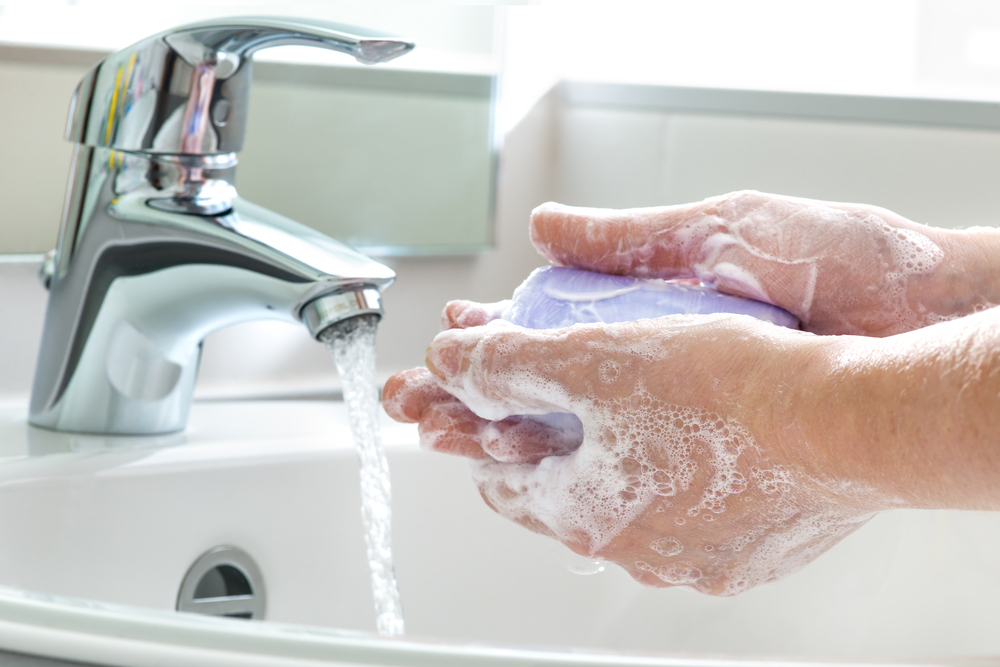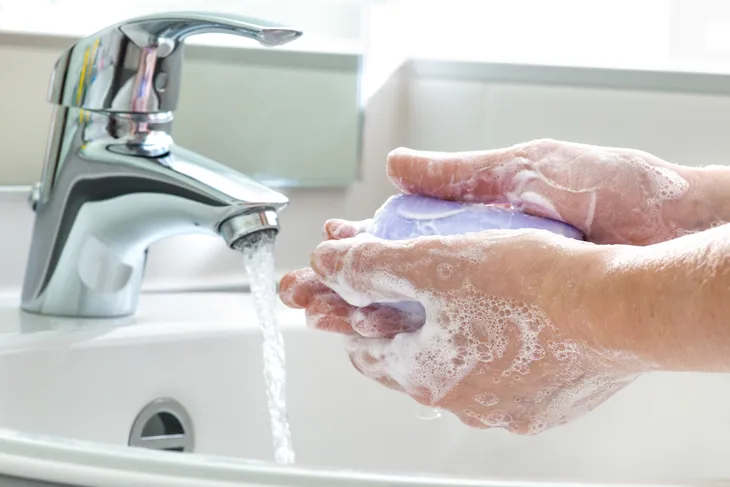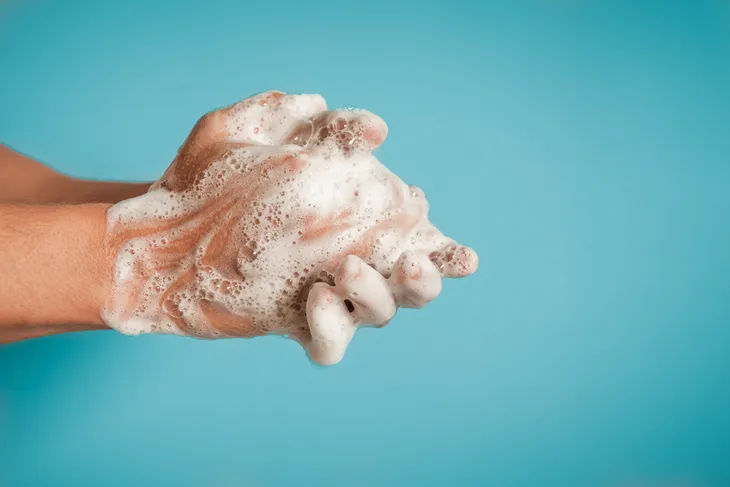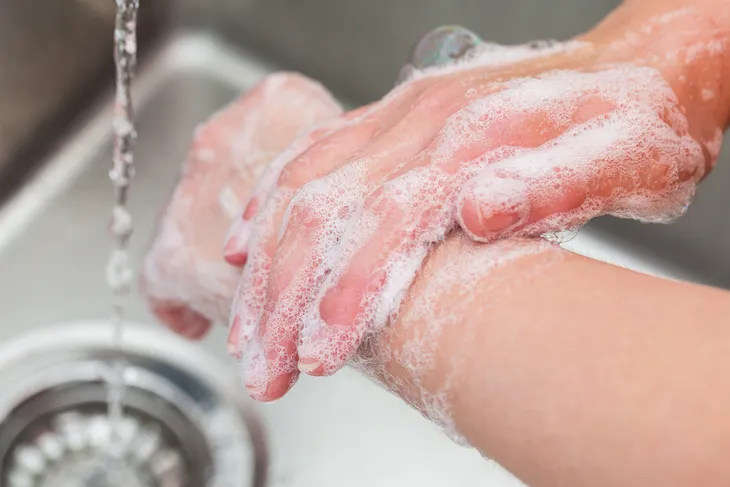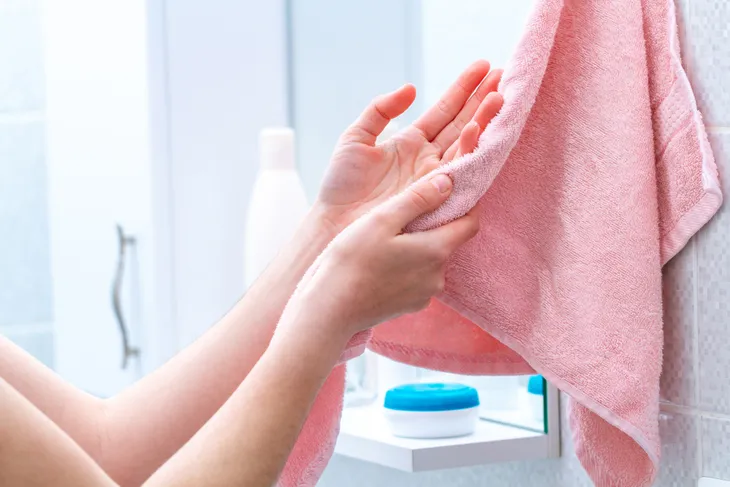Hand washing—it sounds like a fairly straightforward part of the daily routine. Most of us wash our hands at least a few times a day, and most often following a trip to the bathroom. But why is it so important to wash our hands on a regular basis, especially after going potty?
Hand washing is important because it can remove germs that can make us either a little bit sick or very ill. The germs hand washing removes can lead to irritating conditions like the common cold or more sinister health problems, such as the flu, which can bring diarrhea, vomiting, and muscle pain. Overall, there are several important steps to keeping hands clean and bodies healthy…
Wet the Hands
The first step to completing a thorough hand washing that effectively removes potentially hazardous germs from the hands: wetting. This step begins the process of removing large amounts of dirt and germs that could pose a health risk to you or others.
Surprisingly, this is more complicated than you think. That’s because this step is really only effective if you use clean, running water. When it comes to killing germs, it really doesn’t matter if you use hot or cold water; however, using cool water is more environmentally friendly and is less likely to cause skin irritation.
Reach for the Soap
Ever washed your car with just plain old water? If so, you probably noticed that it only removed the largest and most obvious chunks of dirt and grime. But using only water for cleaning anything—from a car to our hands—isn’t particularly effective at leaving the surface clean and germ-free.
To remove most germs and leave your skin feeling truly clean, it’s important to use soap. The soap you use should reflect your body’s needs: for example, if you have sensitive skin, be sure to use soap that includes moisturizer and won’t dry out your skin.
Lather it Up
Many people know that wetting their hands and using a bit of soap represent important steps in the hand washing process. But too many people simply dab a bit of soap and quickly run their hands under running water. The end result: few germs are removed from the hands.
That’s why it’s important to sufficiently wet the hands and use a reasonable amount of soap—about enough to fit in the palm of one hand—before efficiently lathering up. Scrub each part of your hands, from the palms to the knuckles and between each finger. To remove even more germs, don’t forget the wrists and forearms.
Take Your Time
How long should you lather your hands before rinsing the soap off with clean, running water? It’s a question many of us think about many few people actually know the answer to. Is it a long time or just a short while?
The answer, according to the Centers for Disease Control and Prevention: about twenty seconds of lathering up with soap should do the trick. That’s like the time it takes to air a short television commercial. If you lather over that short time you should remove most visible and invisible dirt and germs—depending on your recent activities, of course.
Rinse Well
This is the step that people often ignore or spend too little time carefully carrying out. That’s because many people feel that, once the soap has been applied and lathered on, most germs have already been removed.
However, it’s important to remember that carefully and slowly rinsing soap from the skin can significantly reduce skin irritation. This is particularly important for those who have sensitive skin and can develop dry or sore skin on their hands when using some kinds of hand soap.
Dry Using a Clean Towel
Drying your hands is a crucial part of the hand washing process. There’s one really good reason for that: if you fail to use a clean towel—whether it’s paper, polyester, wool or some other kind of material—you may add as many germs to your hands as you just removed. That’s why it’s so important to make sure the material you’re using for drying your hands is fresh and clean.
Alternatively, if you’re in a public place with an air dryer, this can be an excellent way to dry your hands without adding new germs. Just be patient and let the dryer do its work: after all, losing patience and ending the process by rubbing your hands on your shirt or pants could simply cancel out the entire effort.
